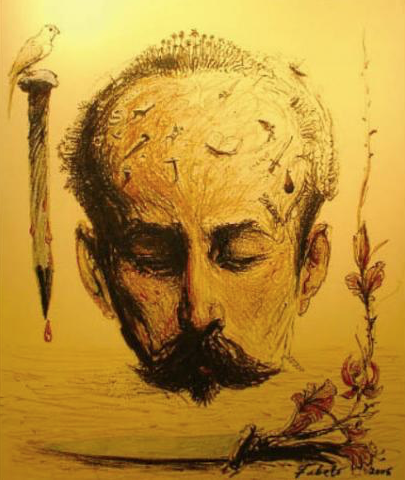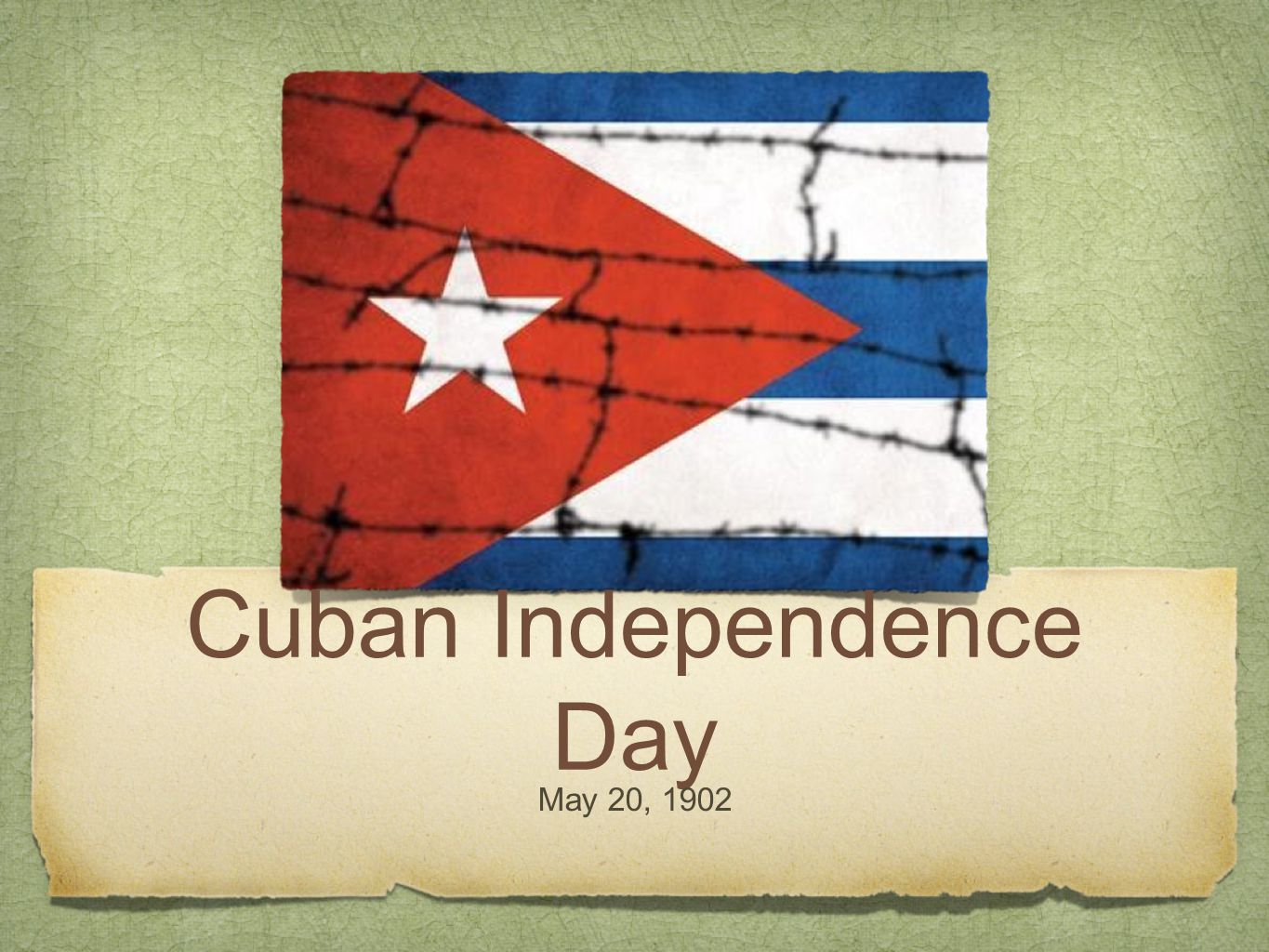

I was brought up and taught to treat everyone the same way they treat me, therefore I dedicate my entry to this special date in history.
All my life I have celebrated May 20 as Cuban Independence Day. Initially, as a little kid, while living in Habana, Cuba, and later on serving as GM-15/10 https://www.voanews.com/ and launched news and information content at Marti Media, named for Cuban icon Jose Marti. https://www.radiotelevisionmarti.com/
José Julián Martí Pérez was a poet, philosopher, essayist, journalist, translator, professor, and publisher, who is considered a Cuban national hero because of his role in the liberation of his country from Spain.
His main objective was Cuban independence, writing: “My verse will grow under the grass and I will also grow.”
That day he was unusually dressed as a civilian, with a dark jacket, bow tie, and white pants. On his chest – as a badge of Mambí decorum – he wore the rosette of Carlos Manuel de Céspedes, and shield his heart, a portrait of María Mantilla, “the beloved girl.” https://en.wikipedia.org/wiki/Jos%C3%A9_Mart%C3%AD
Sitting solemnly on his horse, he inspired respect and admiration. As he passed between a dry bush and a flowering shrub, the shots of the ambushers hit the Maestro's body; the light from above bathed him, he released the steed's bridles, and his slack body fell to lie on the beloved Cuban soil,” wrote historian Rolando Rodríguez, narrating the fateful moment.
The orphaned revolution lost its intellectual guide. That night there was no need to declare silence among the Mambisa troops. "The homeland-in-arms was in mourning." With bitter pain, his colleague in war Máximo Gómez recorded in his diary: “We are left without the best of our comrades, and the soul, we could say, of the insurrection.”
Now 127 years later, there is life after death, as the place where the greatest Cuban patriot died but continues to ride and fight into every battle.
In fact, it was 120 years ago today, on May 20, 1902, that my birthplace, the independent Republic of Cuba was inaugurated with the swearing-in of its first elected president, Tomas Estrada Palma.
Cuban patriots were waging the War of Independence against colonial Spain since 1895, a conflict that blended into the brief Spanish-Cuban-American War in 1898, in turn giving way to the first U.S. Intervention (1898-1902), which called for elections in 1901. Estrada won the presidency after 25 years in exile.
However, since 1959, an un-elected, de facto Caribbean nepotistic dynasty aka The Castro Clan has spread propaganda about Estrada turning Cuba into a Yankee state.
Paradoxically, it was the Fidel Castro who made Cuba subservient to Russia, thus transfiguring a progressive trending nation into a backward one from which its people desperately aspire to flee. Ironically, that ruling entrenched oligarchy now seeks Yankee dollars to subsidize the government's business monopolies managed by a vast network of corrupt Castro kinspeople and accomplices.
Unfortunately, throughout the Republic of Cuba's trajectory, its military often interfered in politics, culminating in the Castro Clan's decades-long reign, of my homeland as the island nation is tormented by an egotistic elite of revolutionaries parroting passe, hate-mongering Marxist-Leninist slogans while the average Cuban continues to suffer boundless deprivations.
What Cuba has always needed is a regime change that would bestow power to the people and establish a democratically elected, civilian-managed, freewheeling, and open society that will respect individual freedoms as well as human and civil rights, as was envisioned by our founding father, Presidente Tomas Estrada Palma.
On this date, I am grateful for who I am, for what I have done, and for what I have yet to do in my life. QUÉ ViVA CUBA LIBRE.